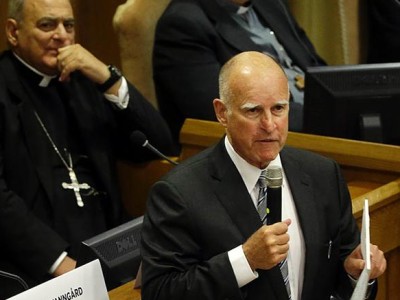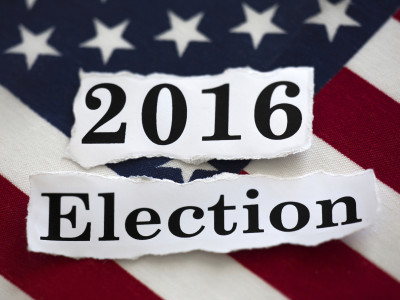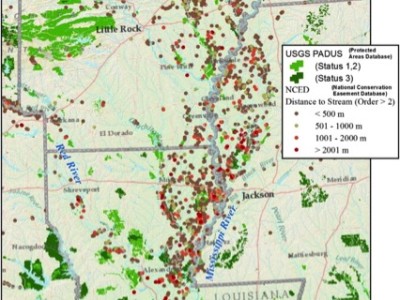Climate Change
The Top Ten Reasons Trump Should Endorse a Carbon Tax
A bold move, if Trump is brave enough to go there.
Not that he’s asked for my advice, but here are ten powerful reasons why Donald Trump should endorse a carbon tax: 10. It would be completely inconsistent with his past positions. 9. It would shock the GOP establishment. 8. It would shock the media. 7. He’s already endorsed a tax increase for …
Continue reading “The Top Ten Reasons Trump Should Endorse a Carbon Tax”
CONTINUE READINGAnd a Child Shall Sue Them: Ambitious New Climate Lawsuit Filed Against Obama Administration
Will This Litigation Be More Successful Than Earlier, Related “Atmospheric Trust” Lawsuits?
Late last week, attorneys representing children from around the nation filed a provocative new lawsuit in federal court, arguing that the Obama Administration is violating the children’s constitutional rights by not taking far more dramatic steps to curb greenhouse gas emissions and address climate change concerns. The newly-filed complaint in the lawsuit, Juliana ex rel. …
CONTINUE READINGWhy legal challenges to the EPA Clean Power Plan will end up at the Supreme Court
Cross-posted from The Conversation. Even before President Obama announced the Environmental Protection Agency’s (EPA) Clean Power Plan on August 3 to regulate carbon emissions from power plants, there were a number of legal challenges to block the law at its proposal stage – none of them successful. Earlier this year, the DC Circuit Court told …
Continue reading “Why legal challenges to the EPA Clean Power Plan will end up at the Supreme Court”
CONTINUE READINGGlobal Warming and Changing Weather
Why DOESN’T global warming just raise the temperature everywhere a little bit?
The amount of global warming that scientists are predicting doesn’t seem like that big a deal — maybe about 4 degrees Fahrenheit if we control emissions, up to maybe 12 if we don’t. But as I’ve said a hundred times — and the experts have said a lot more often than that — we won’t …
Continue reading “Global Warming and Changing Weather”
CONTINUE READINGCalifornia Governor Jerry Brown: Environmental Saint or Sinner?
Brown’s National & International Environmental Reputation Disputed by Some California Environmentalists
California Governor Jerry Brown has had a most eventful 2015, especially when it comes to environmental policy. He started the year fresh from an overwhelming election victory last November, earning him an unprecedented fourth term as California’s chief executive. Brown began 2015 by declaring a state drought emergency and becoming California’s “educator-in-chief,” repeatedly warning state …
Continue reading “California Governor Jerry Brown: Environmental Saint or Sinner?”
CONTINUE READINGThe Climate Issue & the 2016 Election
There are, to say the least, a broad range of views among the candidates.
We’re beginning to have a sense of where the leading candidates stand on climate change. On the Democratic side, Hillary Clinton announced a goal of 33% renewables by 2030, after saying that the “reality of climate change is unforgiving no matter what the deniers say. Meanwhile, Bernie Sanders is said to have the strongest record on …
Continue reading “The Climate Issue & the 2016 Election”
CONTINUE READINGA Case of Reverse Causation?
Tomorrow’s Emission Determine Today’s Social Cost of Carbon
Here’s the weird thing: the social cost of carbon today, depends significantly on the year-by-year emissions of carbon in the future, which we obviously don’t know. (Because it depends on our own future actions!) It takes some explanation to show why that’s true and how it matters. If you know a bit about climate policy, you know …
Continue reading “A Case of Reverse Causation?”
CONTINUE READINGCould a Riparian Conservation Network increase the ecological resilience of public lands?
A new article suggests river corridors could leverage existing policies to build habitat connectivity
As we try to protect biological diversity for the future, a perpetual challenge is ensuring that the strategies we adopt today will continue to work in the face of changing conditions. How can we design conservation approaches that will be resilient in the face of environmental challenges that will only become more severe in coming years? …
CONTINUE READINGWhy Paris won’t be Copenhagen
Christiana Figueres, head of the UN climate convention, makes the argument at UCLA
As Executive Secretary of the UN Framework Convention on Climate Change since 2010, Christiana Figueres jokes that it has been her job to “put 195 countries in a better mood” after the overhyped Copenhagen talks in 2009. The Emmett Institute hosted a lunch at UCLA with Ms. Figueres earlier this week, in which she assured California stakeholders that this year’s Paris …
Continue reading “Why Paris won’t be Copenhagen”
CONTINUE READINGCaritas and Climate Change
Pope Francis has linked the issue of climate change with compassion for the global poor.
Laudato Si’, the new encyclical on climate change, is receiving global attention because of its potential impact on political debates over climate change. Part of the Pope’s message seems to be based on the idea that humans have a duty to care for natural world, a rereading of the traditional assumption that God gave humans …
Continue reading “Caritas and Climate Change”
CONTINUE READING













